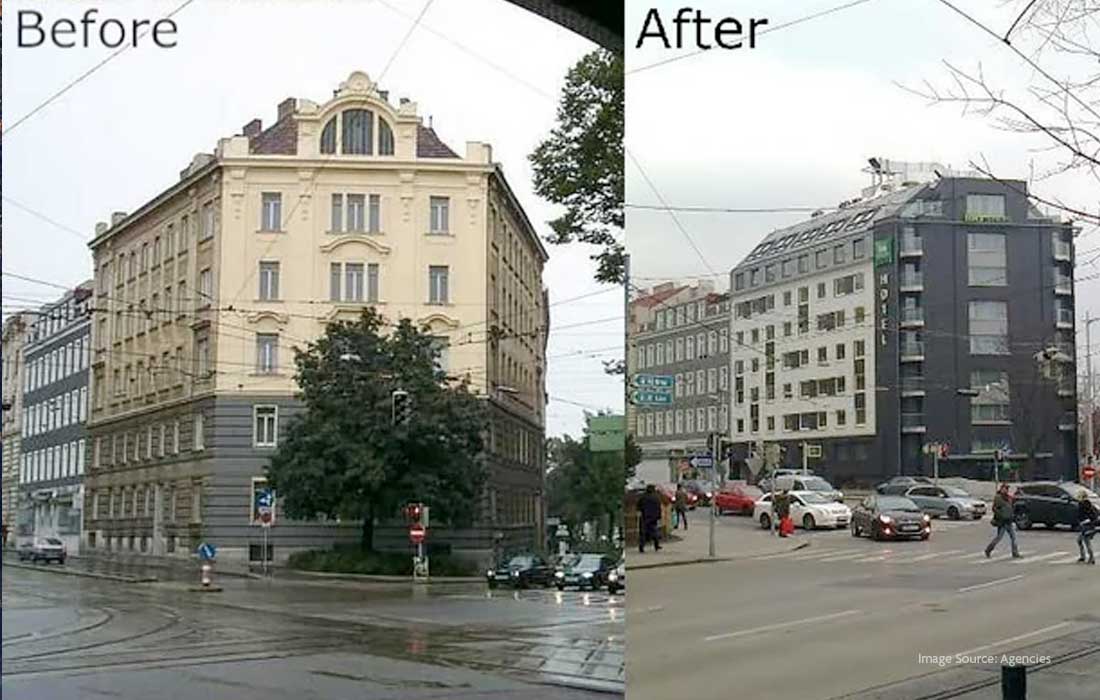Innovative Sustainable Fastening System Revolutionizes Building Renovation
GRAZ, AUSTRIA — In a significant advancement poised to reshape the landscape of construction and building renovation, researchers at Graz University of Technology have developed an innovative fastening system that facilitates the modernization of structures without the need for demolition. This remarkable breakthrough, realized through the collaborative efforts of the ReCon scientific project, is designed to address pressing environmental concerns surrounding urban development and waste management.
At the core of this pioneering system lies the introduction of detachable connection points. These strategically engineered components allow for the separation of long-lasting structural elements from those that are designed to have shorter lifespans, such as interior finishes, floors, and partitioning walls. In essence, this allows architects and developers to upgrade a building’s interior while preserving its primary framework for many years, if not decades. Such a paradigm shift not only enables the reuse of significant structural components but also enhances the building’s overall lifespan, thereby promoting sustainable practices in an industry often criticized for its substantial waste output.
The ReCon project has garnered significant recognition, recently clinching a prestigious gold medal at a scientific research competition within the sustainability category. This accolade serves as a testament to the project’s innovative approach and its potential to contribute to a more responsible form of construction that aligns with global sustainability goals. As cities face the dual challenges of rapid urbanization and increasing environmental degradation, the ReCon system emerges as a necessary solution, advocating for a model of construction where sustainability and efficiency coexist harmoniously.
Moreover, experts at Graz University express that this fastening system not only enhances the longevity of buildings but also provides architects with increased flexibility in designing adaptable spaces. In burgeoning urban centers where demographic shifts and economic changes continually reshape the landscape, the ability to modify indoor environments with relative ease is invaluable. This adaptability is critical as it allows for nimble responses to the evolving needs of urban populations, all while minimizing disruption to essential infrastructure.
As we collectively grapple with the implications of climate change, the emergence of this fastening system represents a significant evolution towards a circular economy in architecture. In this framework, materials can be efficiently repurposed and reused, moving away from the traditional model of single-use construction resources that often culminate in demolition and the subsequent landfilling of waste.
Regional and global stakeholders in the construction and real estate sectors are likely to take keen interest in this innovation. As countries and corporations increasingly prioritize sustainable development, the integration of such advanced systems can significantly enhance their environmental profiles. Architectural firms and property developers are urged to consider these adaptable structures in their projects, which can lead to reduced carbon footprints and lower construction costs over time.
In summary, the sustainable fastening system developed by Graz University of Technology represents a formidable response to contemporary challenges in the construction industry. Aimed at merging innovation with ecological responsibility, this system stands not merely as a technological achievement but as a beacon of hope for a more sustainable urban future. As more stakeholders recognize the imperative of adapting construction practices to preserve the environment, the principles at the heart of the ReCon project are likely to gain wider traction across national and international platforms.
The ongoing work of researchers and developers who prioritize sustainable solutions will undoubtedly play a crucial role in shaping the future of architecture, making cities not only more efficient but also more resilient in the face of ecological challenges.
Tags:
#SustainabilityNews #BusinessNews #RealEstateNews #Austria #CircularEconomy

